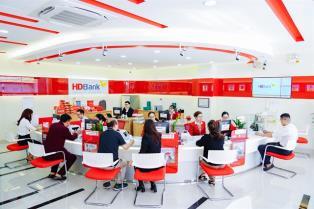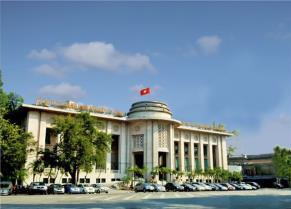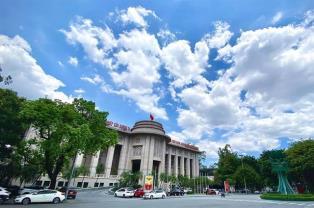Standard Chartered, a major international bank with a strong presence in Việt Nam, is helping bridge the financing and advisory gap for this transition.

HÀ NỘI — Việt Nam is steadily advancing its goal to reach net-zero emissions by developing climate policies and sustainability roadmaps as well as strengthening regional cooperation.
Compared to many Southeast Asian countries, Việt Nam has made notable progress with clear corporate emissions reduction targets and national strategies focused on renewable energy, climate resilience and carbon markets. Yet turning these plans into real impact requires significant financing, strong policy enforcement and specialised expertise.
Standard Chartered, a major international bank with a strong presence in Việt Nam, is helping bridge the financing and advisory gap for this transition. Through sustainable finance programmes, carbon market support and environmental, social and governance (ESG) advisory services, the bank plays an important role in advancing Việt Nam’s shift to a low-carbon, climate-resilient economy.
In 2024, Việt Nam updated its National Adaptation Plan, reflecting a sharper focus on growing climate risks and resilience measures. This update underscores the Government’s commitment to embedding climate considerations into economic development and disaster preparedness. Việt Nam is also part of the Asia Zero Emission Community, a regional platform promoting cooperation among countries working toward carbon neutrality. The country is aligning policies and investment frameworks to meet collective net-zero goals.
A key milestone in 2025 was the introduction of the Green Taxonomy under Decision 21/2025/QĐ-TTg. This taxonomy defines sustainable economic activities, guiding both public and private investments. Effective implementation, especially alignment with global standards, will be vital to unlocking international capital and encouraging green projects.
Despite progress, mobilising finance remains a major challenge. Clear policies and economic incentives like carbon pricing and emissions trading schemes are essential to create an environment that supports green investments. These mechanisms assign a cost to carbon emissions, encouraging companies to reduce their footprint while assuring investors that climate goals are actionable.
Standard Chartered has committed globally to mobilising US$300 billion in sustainable finance by 2030 to support clients in their transition. The bank reported $982 million in sustainable finance income in 2024, close to its $1 billion target for 2025. In Việt Nam, the bank’s efforts are closely linked with the Just Energy Transition Partnership (JETP), which supports the country’s shift to cleaner energy through collaboration between government, development partners and private investors.
In May 2025, the Ministry of Industry and Trade submitted 25 project proposals under JETP to the International Partners Group (IPG) and the Glasgow Financial Alliance for Net Zero (GFANZ). Eight projects were selected for further resource mobilisation, with three already progressing significantly. Standard Chartered works alongside government agencies, IPG and GFANZ members to help move these projects from proposal to financing and implementation.
Beyond financing, improving corporate sustainability disclosures is a key priority. Transparent, comparable and credible reporting aligned with international frameworks enables companies to access global capital markets more effectively. Standard Chartered’s ESG Advisory supports Vietnamese corporations in enhancing disclosures, integrating climate risks into governance and adopting best practices. Building this capacity is vital for attracting international investors, who increasingly require high ESG standards before committing capital.
Việt Nam’s carbon market development is another crucial part of its net-zero strategy. The country is establishing compliance and voluntary carbon markets to enable emissions trading and offsetting. In 2023, Standard Chartered signed a memorandum of understanding with the Ministry of Agriculture and Environment (formerly MONRE) to support knowledge sharing and capacity building. Working with partners such as Climate Impact X, the bank has facilitated workshops on voluntary carbon market mechanisms to strengthen transparency and integrity.
Việt Nam could benefit from joining the ASEAN Common Carbon Framework, a regional initiative currently involving Malaysia, Indonesia, Singapore and Thailand. Participation would enhance market integration and credibility, and enable cross-border trading of carbon credits. Adopting globally recognised carbon standards such as Verra, Gold Standard and the Core Carbon Principles under the Integrity Council for the Voluntary Carbon Market will be essential to attract investment and ensure Vietnamese carbon credits meet international expectations.
Việt Nam’s net-zero journey is underway but still faces challenges. Mobilising adequate finance, strengthening policies, developing specialised capacity and enhancing regional cooperation are critical. Collaboration between the Government, financial institutions like Standard Chartered, international partners and the private sector will be key to accelerating sustainable development. By building sustainable finance ecosystems, improving market mechanisms and supporting climate-resilient projects, Việt Nam can unlock the capital needed to lead the region in sustainability. — VNS





